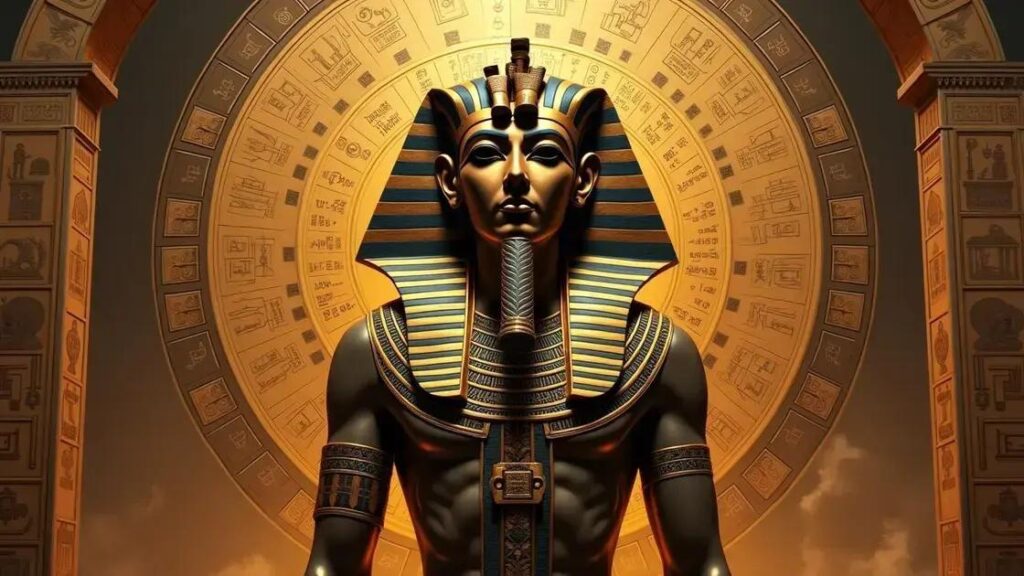The origin of the trick of the Egyptian pharaohs is rooted in their cunning strategies to maintain power and manipulate society. These tactics influenced governance, culture, and the lasting legacy of ancient Egypt, showcasing the importance of intelligence in leadership.
What is the origin of the Trick of the Egyptian Pharaohs? This question tantalizes historians and enthusiasts alike. The ancient pharaohs were not just rulers; they were also masters of manipulation and strategy. Their cunning tactics and clever tricks not only helped them maintain power but also played a critical role in the rituals and beliefs of ancient Egypt. In this article, we will delve into the origins of these tricks, exploring their historical significance, the societal role of the pharaohs, and the enduring legacy of these ancient manipulations.
Unveiling Ancient Egyptian Mysteries
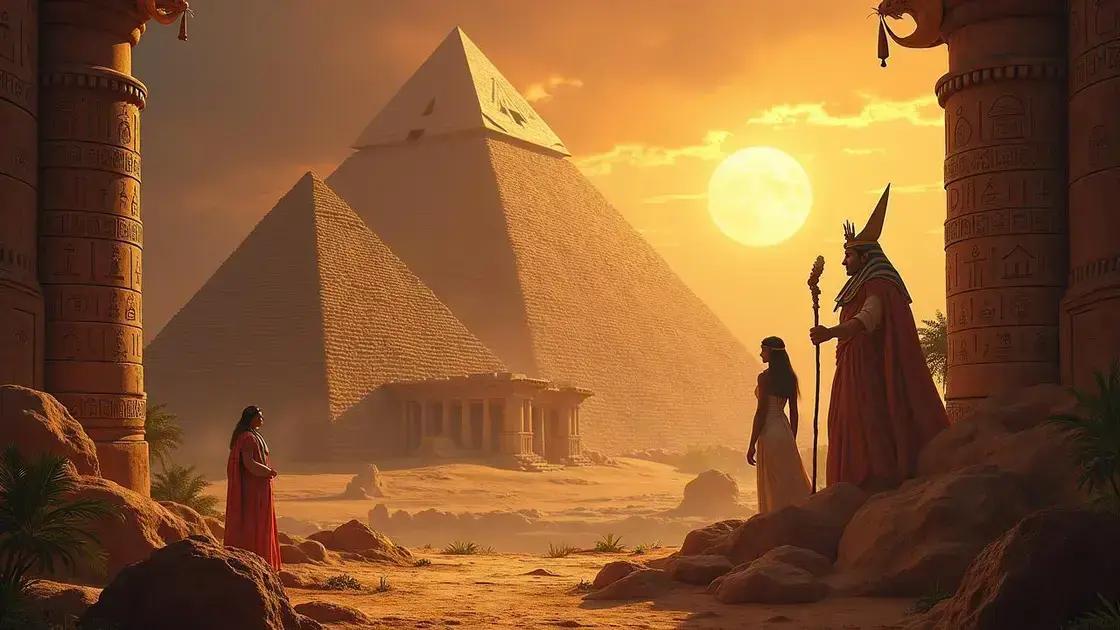
Unveiling the mysteries of ancient Egypt reveals a fascinating tapestry of myths, beliefs, and practices. The ancient Egyptians had a rich understanding of life and the afterlife, which shaped their culture profoundly. Among their many legacies, the tricks played by the pharaohs stand out as examples of cleverness and strategy.
The Enigma of the Pyramids
The pyramids themselves are a stunning achievement of engineering. Built as tombs for the pharaohs, they were designed with intricate traps and hidden chambers to confuse thieves. The idea was to protect the pharaoh’s treasures and ensure their safe passage to the afterlife. These complex structures still puzzle archaeologists today as new discoveries continue to shed light on their construction.
Hieroglyphs and Their Secrets
Hieroglyphics, the writing system of ancient Egypt, also hold many mysteries. These symbols often had dual meanings, serving as both a language and an art form. Historians deciphering these symbols have revealed much about the culture, including rituals, beliefs, and day-to-day life in ancient Egypt.
Gods and Mythology
The ancient Egyptians worshiped numerous gods, each with their own stories and traits. The tricks used by pharaohs often stemmed from these myths—manipulating belief to maintain their power. For instance, some pharaohs presented themselves as gods and used their divine connection to justify their actions and solidify their rule.
The Influence of Magic
Magic played a significant role in ancient Egyptian society. Rituals and spells were believed to influence everything from health to the harvest. Some pharaohs utilized magical tricks to create illusions that would awe their subjects and reinforce their divine status.
The Role of Pharaohs in Egyptian Society
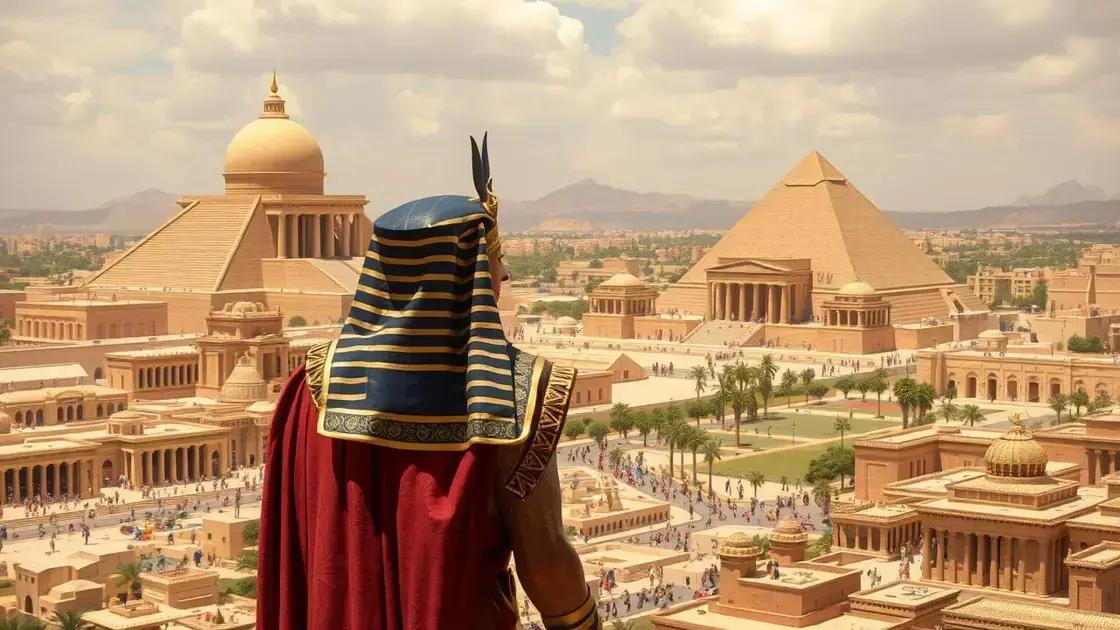
The role of pharaohs in Egyptian society was vital and multi-faceted. They were seen not only as rulers but also as divine figures. Pharaonic power was considered sacred and closely tied to the gods. As a result, pharaohs made crucial decisions that influenced all aspects of life, from politics to religion.
Political Authority
Pharaohs held supreme power in ancient Egypt. They controlled the government, making laws and overseeing the administration. Their decisions impacted agriculture, trade, and, ultimately, the wealth of the kingdom. People looked to pharaohs to maintain stability and security, especially during difficult times.
Religious Leadership
In addition to being political leaders, pharaohs served as the high priests of the land. They performed religious ceremonies that connected the people to the divine. The belief was that a strong pharaoh could guarantee favor from the gods, which was essential for the well-being of the kingdom.
Military Command
Pharaohs were also the leaders of the Egyptian army. They directed military campaigns to defend the kingdom against invaders or to expand its territories. Victories in battle enhanced their reputation and reinforced their status among the people, creating a sense of national pride.
Cultural Influence
The pharaohs shaped ancient Egyptian culture in numerous ways. They commissioned works of art, monumental architecture, and writing that celebrated their reigns. The construction of temples and monuments is a testament to their desire to leave a lasting legacy.
Historical Accounts and Interpretations
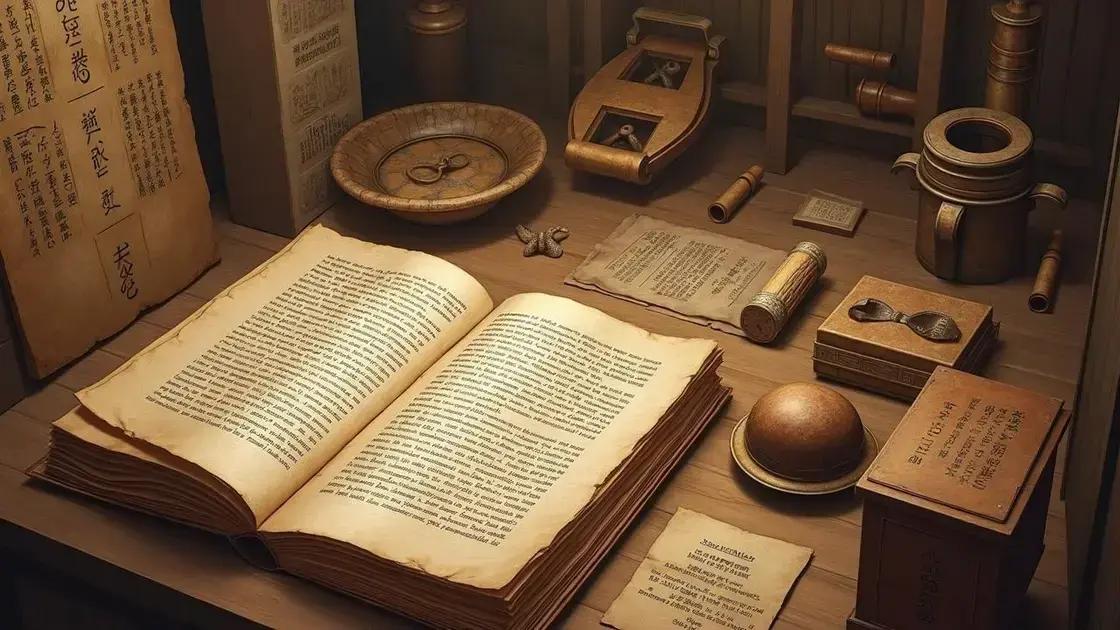
Historical accounts and interpretations of the tricks used by the Egyptian pharaohs vary widely among scholars. Many historians rely on ancient texts and archaeological evidence to reconstruct these fascinating stories. The trickery displayed by pharaohs was often documented in inscriptions, literature, and temples, revealing their cunning strategies.
Scribes and Inscriptions
Scribes played a crucial role in recording the actions and beliefs of the pharaohs. These accounts can be found in temple inscriptions and papyrus scrolls. They often glorified the accomplishments of the pharaohs, portraying them as wise and powerful leaders. However, some texts hint at the cunning tactics used to manipulate the populace and rivals.
Archaeological Discoveries
Modern archaeology continues to unveil new evidence of the pharaohs’ tricks. Excavations in ancient Egyptian sites have uncovered traps in pyramids and tombs, showing how pharaohs protected their treasures from thieves. These findings help historians understand the lengths to which pharaohs went to secure their legacies.
Interpretations by Scholars
Various scholars have offered differing interpretations of the motivations behind these tricks. Some argue that they were necessary for maintaining order and stability in society. Others believe they were rooted in personal ambition and a desire for eternal glory. This debate highlights the complexity of pharaonic rule and the multifaceted nature of power in ancient Egypt.
Influence on Culture and Society
The tricks and cunning of pharaohs influenced Egyptian culture and societal norms. Tales of these clever strategies were passed down through generations, emphasizing the importance of intelligence and resourcefulness. These stories became part of the moral fabric of Egyptian society, impacting values and behaviors.
Legacy of the Egyptian Trick and Its Impact
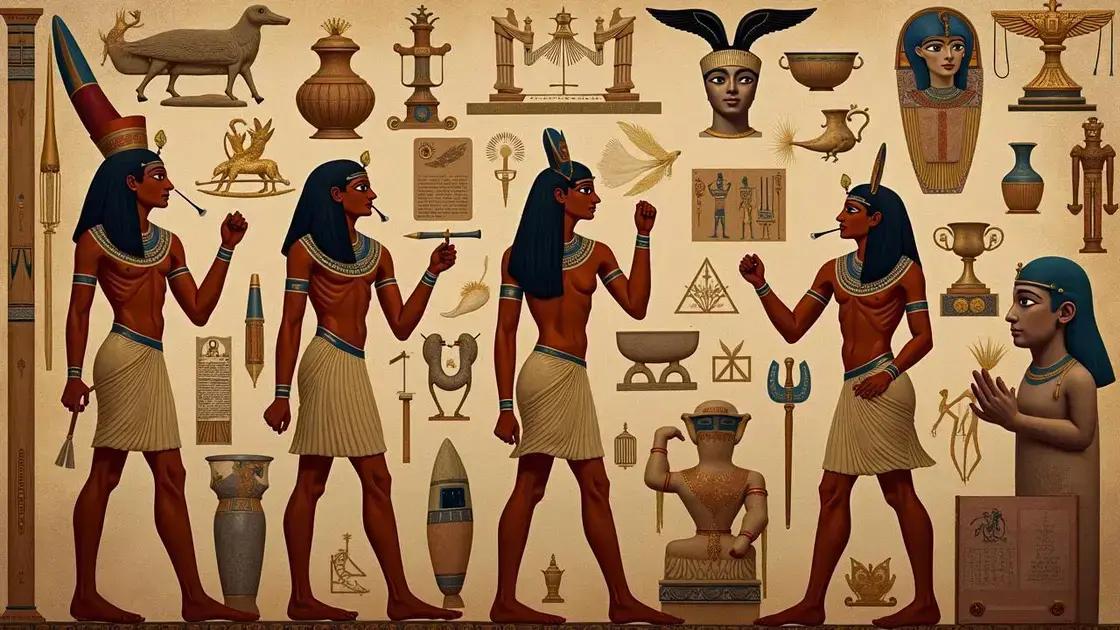
The legacy of the Egyptian trick is profound and enduring. The clever tactics employed by pharaohs not only shaped their reigns but also left a lasting mark on Egyptian culture and society. These strategies demonstrated the power of intelligence and manipulation, aspects that permeated various facets of life.
Influence on Governance
Pharaohs’ tricks set a precedent for governance in ancient Egypt. Their ability to maintain power through cunning strategies taught future leaders the significance of shrewdness in politics. This legacy influenced subsequent dynasties, as rulers adopted similar tactics to control their realms and ensure stability.
Impact on Art and Literature
The stories of pharaohs and their tricks inspired countless works of art and literature. Artists depicted these clever maneuvers in paintings and sculptures, while writers created epic tales that celebrated pharaonic cunning. This artistic legacy kept the tales alive and ingrained them into the cultural consciousness of Egypt.
Lessons for Future Generations
The tricks of the ancient pharaohs serve as lessons for future generations. They illustrate the importance of strategy and innovation in leadership. This understanding helps modern societies navigate challenges and develop ethical approaches to governance and power.
Continued Fascination with Ancient Egypt
The legacy of Egyptian tricks continues to fascinate historians, archaeologists, and the general public. Each new discovery offers a glimpse into the past, fueling interest in how these strategies influenced historical outcomes. This ongoing exploration keeps the rich history of ancient Egypt relevant today.
In Conclusion: The Enduring Legacy of Egyptian Pharaohs
The exploration of the tricks used by the Egyptian pharaohs reveals layers of complexity in their reigns and impacts on society. From their clever manipulations in governance to their influence on art and literature, the legacy of these ancient rulers continues to captivate our imaginations.
Understanding these historical accounts enriches our knowledge of ancient Egypt and highlights the significance of strategy in leadership. The lessons learned from the pharaohs’ cunning serve as reminders of the importance of intelligence and adaptability in today’s world.
As ongoing research and discoveries continue to unveil more about this ancient civilization, we are reminded of how their strategies and stories resonate through time, offering insight into the intricacies of power, culture, and society.
FAQ – Frequently Asked Questions About the Origin of the Trick of the Egyptian Pharaohs
What are the tricks used by the Egyptian pharaohs?
The tricks used by the Egyptian pharaohs included cunning tactics to manipulate rivals and maintain power, such as creating illusions or traps.
How did pharaohs influence Egyptian society?
Pharaohs influenced Egyptian society through their political authority, religious leadership, military command, and cultural contributions.
What is the significance of ancient Egyptian tricks?
These tricks illustrate the importance of strategy and intelligence in governance and leadership, inspiring future rulers and societies.
How do historians interpret pharaonic tricks?
Historians interpret pharaonic tricks through ancient texts, inscriptions, and archaeological discoveries, revealing their complexities and historical implications.
What legacy did the Egyptian pharaohs leave behind?
The legacy includes lessons in leadership, cultural influences in art and literature, and continued fascination with their strategic maneuvers.
Are there any modern lessons from ancient Egyptian tricks?
Yes, the strategies of ancient Egyptian pharaohs remind us of the value of intelligence and adaptability in contemporary governance and management.

